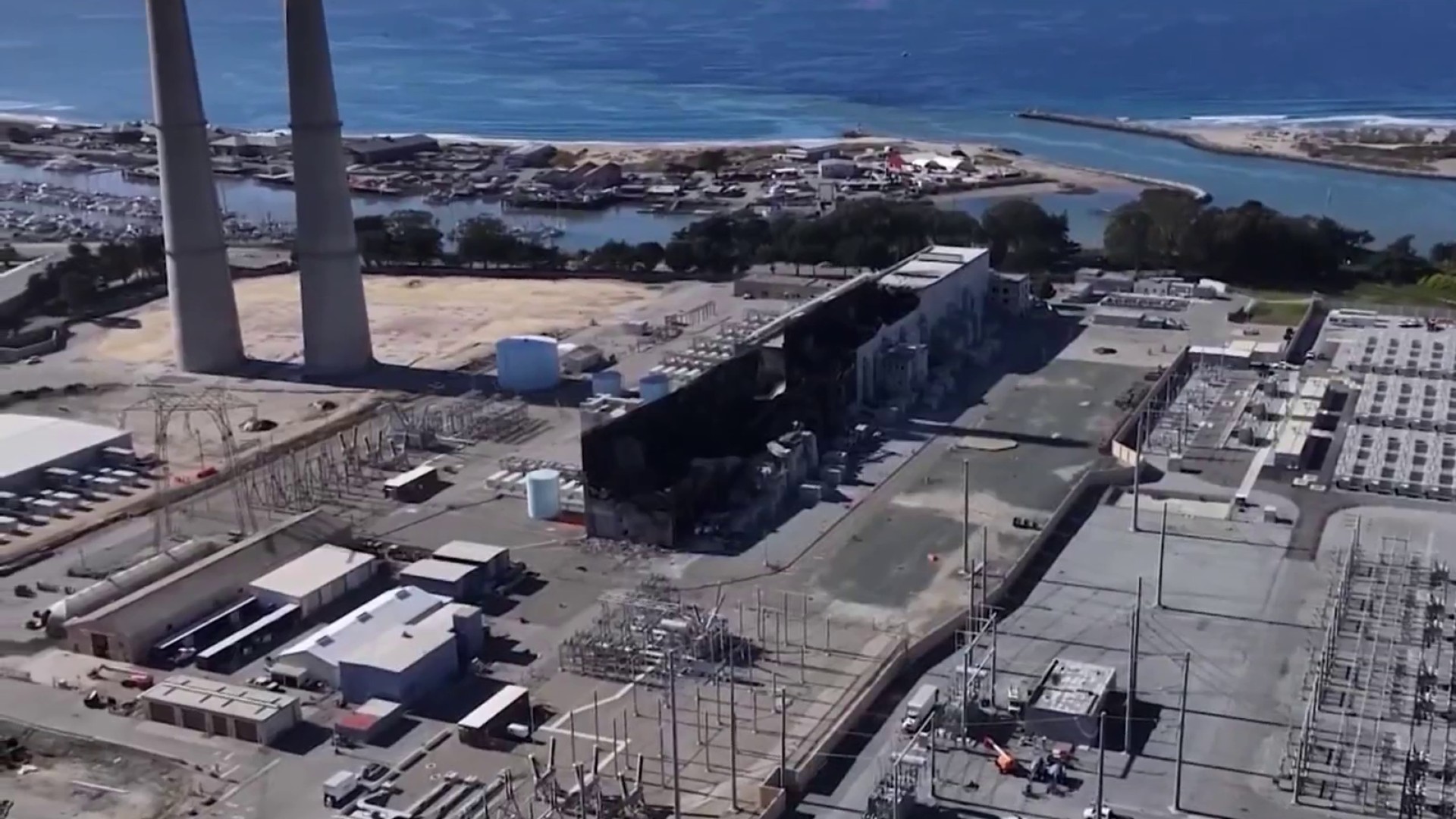New data shows that heavy metals from the smoke at the Moss Landing battery storage plant fire have turned up miles away at levels that a toxicologist calls “concerning.” Jaxon Van Derbeken reports.
New data collected by nearby residents after the Moss Landing battery fire and tested by a private lab shows heavy metals in surface dust miles from the scene -- at levels that one toxicologist calls “concerning.”
“Something came out of that plant that's hurting people, and it's still happening,” said Brian Roeder, a co-founder of the activist group Never Again Moss Landing who led the dust sampling effort.
In late January, volunteers took more than 100 dust samples around Prunedale, Castroville and other areas around the plant that caught fire on Jan. 16.
“There is reason to be concerned,” Don Smith, an environmental toxicologist at UC Santa Cruz who specializes in heavy metals, said of the of the findings.
The dust residents collected using swab samples taken from flat, non-metallic surfaces reflects notably higher levels of nickel, cobalt and manganese, the three major components of lithium-ion batteries, Smith says.
All three elements have potential short-term and long-term health effects, including respiratory inflammation, triggered when microscopic particles get trapped deep in the lungs, he says.
“Both manganese, and to a lesser extent, cobalt, are known to be neurotoxins. And nickel, of course, is recognized as a carcinogen,” Smith said.
Smith advises Moss Landing area residents to wear masks as they safely remove dust regularly from their homes, and to be careful not to disturb the soil in their yards or flower beds.
Roeder says he and his wife had to move from their Prunedale home after she started having respiratory problems following the fire.
“We're not going back. We've abandoned our house at this time,” he said.
Get a weekly recap of the latest San Francisco Bay Area housing news. Sign up for NBC Bay Area’s Housing Deconstructed newsletter.
Roeder said one of the first things the group decided to do was to test the dust in the areas around their homes – according to EPA protocols and instructions provided by a private lab he paid to analyze the results.
Although Smith says there’s currently no regulatory guidance about safe levels in dust, he’s worried that the swab sample results show levels notably higher than typical background levels, by as much as two to three times more concentrated.
Meanwhile, tests of the Elkhorn Slough ecological preserve done independently by local marine researchers also found elevated levels of the three battery metals in the soil east of the plant. The marine scientists even found charred pieces of batteries.
Roeder wants the state to do more testing beyond the limited efforts of marine researchers and residents themselves.
“There's not enough data,” he said. “One of my questions is, why isn’t data being collected that has to do with people's health?”
The county’s website cites some data collected by the state Department of Toxic Substance Control, which confirms some elevated soil levels in the immediate vicinity of the plant.
But the samples were not taken from the same Prunedale and Castroville areas where the residents did their dust sampling.
The county says the data collected to date has to be more fully analyzed before it develops a “proactive monitoring plan” to “detect and address any potential concerns.”
The plant’s owner, Texas-based Vistra, says “no hazardous conditions have been detected” in its own testing and air monitoring outside the plant.
“We want to emphasize again that Moss Landing is not only home to our facility, it’s home to our employees and neighbors,” the company said. “We are committed to doing everything we can to do right by our community and are working in concert with federal, state, and local agencies to ensure public health and safety.”
But at least one popular business has become a casualty of the fire.
“I love what we've created here,” said Kim Solano, owner of the Haute Enchilada Café, which has been operating for 25 years in the shadow of the Moss Landing plant.
Solano says her café was thriving until Jan. 16. Not long after the fire forced her to close, she reopened briefly. But a flareup prompted her to make a painful decision, she said.
“I decided to close because, one, there's not enough business, and two, the uncertainty of the plant in its current state,” she said while sitting in her now empty establishment.
“We're just waiting for the answers,” said Solano, who has suffered respiratory issues along with her husband. The couple recently filed a federal suit against Vistra.
Solano says she’s angry the community has been forced to live in limbo. She expects the café will remain closed for the foreseeable future while authorities figure out the cause of the fire and make sure the plant is safe.
“My request is to prove to me that I have nothing to worry about,” Solano said. “You know, prove to my community that we have nothing to worry about.”



